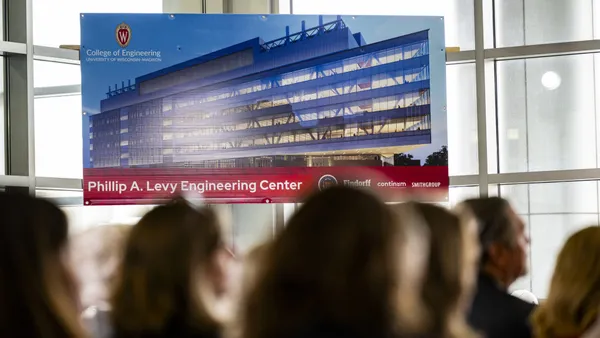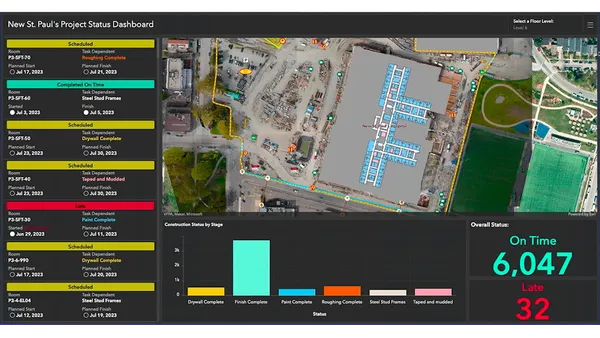Two major European contractors, U.K.-based Balfour Beatty and Lendlease Europe, announced this week plans to reduce carbon emissions on their construction projects.
Balfour Beatty announced Monday it has developed technology to manage power usage on its jobsites and reduce carbon emissions across its construction sites by up to 80%. On Tuesday, Lendlease Europe released it’s “Roadmap to Absolute Zero Carbon,” a 20-year plan to reduce emissions on construction projects.
Balfour Beatty’s EcoNet technology
Balfour Beatty developed its EcoNet System technology in partnership with construction equipment rental company Sunbelt Rentals and software developer Invisible Systems.
The system manages power demand by automatically shutting off electricity to construction equipment when not in use. This allows regulation of power consumption during times when demand is highest, such as when equipment jobsite trailers are occupied or when equipment is being operated.
Construction sites are usually powered through connections to the power grids or through diesel generators. EcoNet is designed to reduce the power demand on the grid and reduce use of the generators, which will reduce carbon emissions as well.
EcoNet was first launched in May 2020 on Balfour Beatty’s East Leeds Orbital Route highway project. Within the first six months of use, EcoNet has reduced carbon emissions on the project by 83%, Balfour Beatty claimed.
Currently, 21 Balfour Beatty sites are using EcoNet. The contractor said it plans to roll the system out across 50 sites by summer 2021, and is committed to installing EcoNet on any new site in the U.K. with more than six facility trailers.
Once fully embedded, Balfour Beatty expects to save a minimum of 2,200 tons of carbon dioxide emissions per year, with individual sites reducing their carbon emissions between 30% and 80% of their normal levels, the statement said.
Lendlease’s road to absolute zero
In its announcement, Lendlease Europe specified its plans for vastly reducing its carbon footprint over the coming years. The contractor said it is committed to net zero carbon by 2025 for Scope 1 emissions, which are produced directly within Lendlease’s control, such as burning fuel, and Scope 2 emissions, which are purchased by Lendlease, such as electricity and heating.
Lendlease Europe hopes to reach zero carbon by 2040, eliminating all emissions, including Scope 3 emissions -- those produced often outside of their control, such as business travel, procurement, waste and water. Additionally, the firm plans to use 100% renewable electricity before 2030.
Achieving absolute zero carbon will require help and collaboration from tenants of Lendlease spaces and the contractor’s supply chain, especially in the reduction of Scope 2 and 3 emissions, according to the release.
U.S. environmental roadmaps
European contractors are in part working toward long-term environmental goals due to the European Union’s climate-neutral by 2050 goal, created by the United Nations’ Paris Agreement, which the U.S. withdrew from under President Donald Trump. President-elect Joe Biden announced his intentions to rejoin the Paris agreement, so roadmaps for reducing carbon emissions domestically may become more frequent with the administration change in January.
In the U.S., engineering and construction company Black & Veatch announced recently said that it would cease participation in coal-based design and construction projects in an attempt to focus on more renewable energy work.













